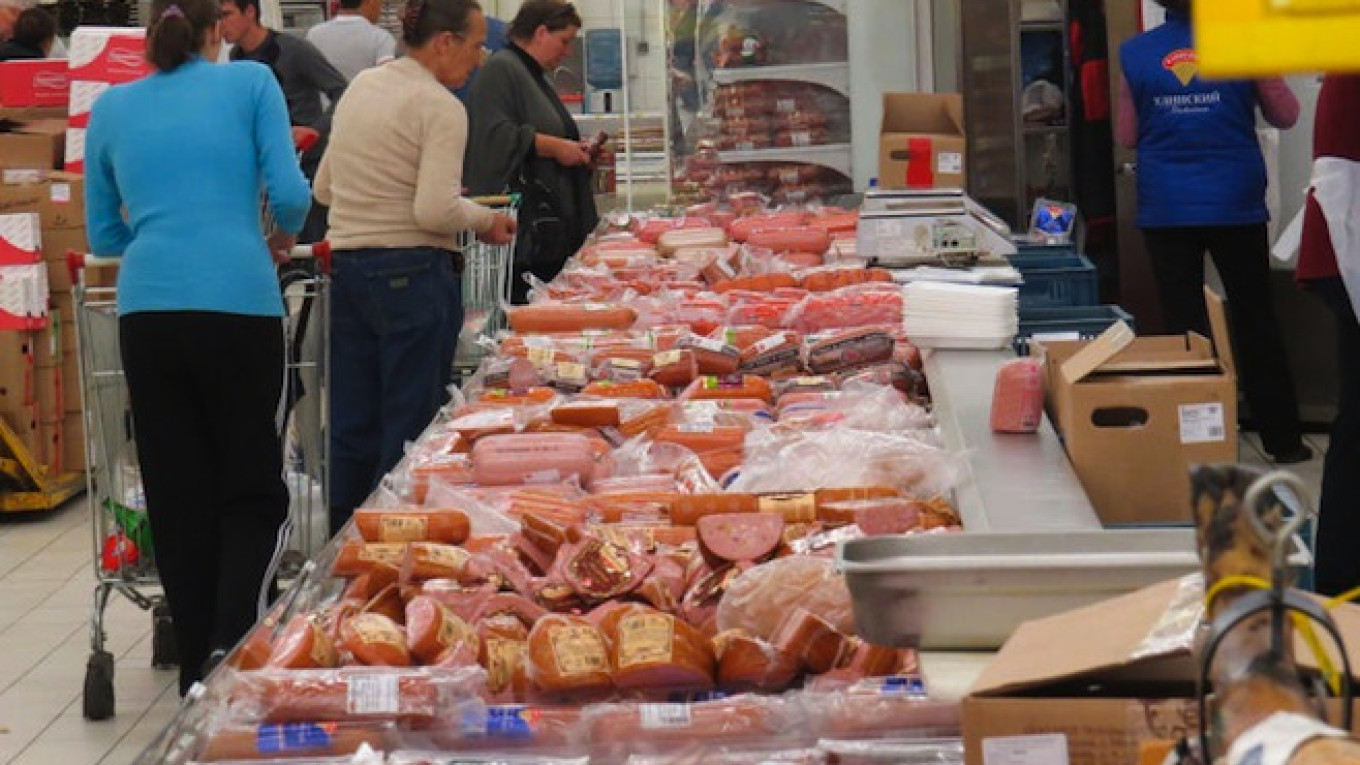Russia's economic crisis has forced nearly half of Russians to slash spending on food and other basic consumer items by almost one-quarter, a report released Friday found.
Forty-four percent of Russians said they were spending an average of 24 percent less on basic goods since December, according to the report by consumer behavior research firm Nielsen.
The findings reflect a sharp worsening in household wealth in Russia in recent months as Western sanctions over Ukraine and lower oil revenues push the economy into recession. Real wages fell by 9.3 percent between March 2014 and March 2015, according to the Rosstat state statistics agency. Overall inflation has rocketed to almost 17 percent, and food prices have grown even faster, rising 24.7 percent year-on-year in March.
The average Russian earned 33,205 rubles ($640) per month as of March, according to Rosstat.
The survey found that 99 percent of respondents had noticed price rises on food and other basic consumer goods in shops. According to the respondents, price tags had swelled by an average of 32 percent since December, the report said.
In Nielsen's previous poll, taken in December, only 31 percent of Russians said they had cut back on spending on food and consumer items.
“Consumers are becoming more careful, are more attentively searching for ways to save money and are looking harder at prices,” Nielsen Russia's commercial director, Ilona Lepp, was quoted as saying in a company press release.
The squeeze on earnings could see Russians spending over half of their income on food by the end of this year, up from 40 percent last year, according to a VTB Capital report cited last month by business daily Vedomosti.
The Nielsen study, which polled 1,080 people from various age groups in an online questionnaire, was conducted from March 16 to 22 in 29 towns and cities across Russia. No margin of error was given.
A Message from The Moscow Times:
Dear readers,
We are facing unprecedented challenges. Russia's Prosecutor General's Office has designated The Moscow Times as an "undesirable" organization, criminalizing our work and putting our staff at risk of prosecution. This follows our earlier unjust labeling as a "foreign agent."
These actions are direct attempts to silence independent journalism in Russia. The authorities claim our work "discredits the decisions of the Russian leadership." We see things differently: we strive to provide accurate, unbiased reporting on Russia.
We, the journalists of The Moscow Times, refuse to be silenced. But to continue our work, we need your help.
Your support, no matter how small, makes a world of difference. If you can, please support us monthly starting from just $2. It's quick to set up, and every contribution makes a significant impact.
By supporting The Moscow Times, you're defending open, independent journalism in the face of repression. Thank you for standing with us.
Remind me later.


